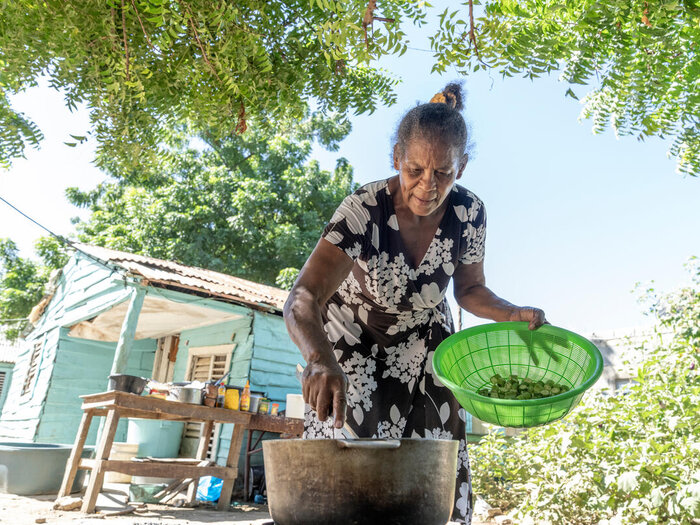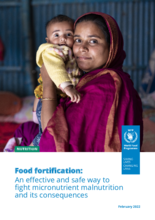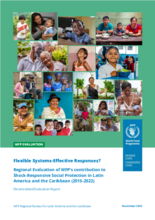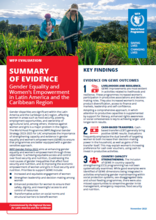Dominican Republic
- 22.8%
- of people live in poverty
- 28%
- of children under 5 suffer from anaemia
- 11 million
- population
Sharing the Caribbean Island of Hispaniola with Haiti, the Dominican Republic is an upper-middle-income country, ranking 80 out of 189 countries in the 2021-22 Human Development Index.
Over the past decade, the country has experienced sustained economic growth and stability – but inequalities persist. Poverty affects nearly a quarter of the population and extreme poverty affects almost 3 percent. Most low-income families live in urban areas, with 63 percent headed by women.
Inequalities drive food insecurity in the country, with restricted purchasing power among vulnerable groups, limited coverage of basic services and safety nets, inadequate regulation of markets, and recurrent shocks. Additionally, undernutrition and overweight/obesity – known as the double burden of malnutrition – cost the country 2.6 percent of its GDP.
What the World Food Programme is doing in the Dominican Republic
-
Advocacy, communication and policies for zero hunger
-
WFP promotes advocacy and social mobilization through the Zero Hunger Movement national initiative with the private sector and civil society, promoting nutritious, healthy diets via cooking shows, community workshops and the support of local social media influencers.
-
Improving nutrition and social protection
-
WFP supports the Government in ensuring that the most vulnerable groups have increased access to nutritious food – through social protection programmes and primary health care targeting children under 5, pregnant and breastfeeding women and girls, adolescent girls, elderly people, and people living with HIV and/or tuberculosis. We also support the design of innovative policies, strategies and programmes to accelerate the goal of ending malnutrition in the country, such as rice fortification.
-
Emergency preparedness and response
-
WFP works with national and local institutions to improve both institutional capacities for tackling, and people’s resilience to, climate-related shocks. We work with local governments to map affectated zones, using artificial intelligence and drones. Crisis-affected populations receive food and nutrition assistance during, and in the aftermath, of shocks, including vouchers.
-
Logistics service
-
WFP supports the wider humanitarian community, private sector and Government in providing a more coordinated, efficient and effective response, increasing geographic scope through the operation of warehouses and collection centres for assistance.
Dominican Republic news releases
Go to pagePartners and Donors
Find out more about the state of food security in Dominican Republic
Visit the food security analysis pageContacts
Office
Avenida Anacaona No.9, Mirador Sur, Casa de las Naciones Unidas
Santo Domingo
Dominican Republic




